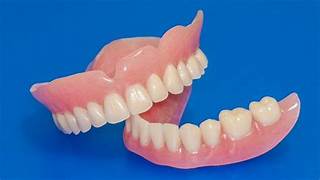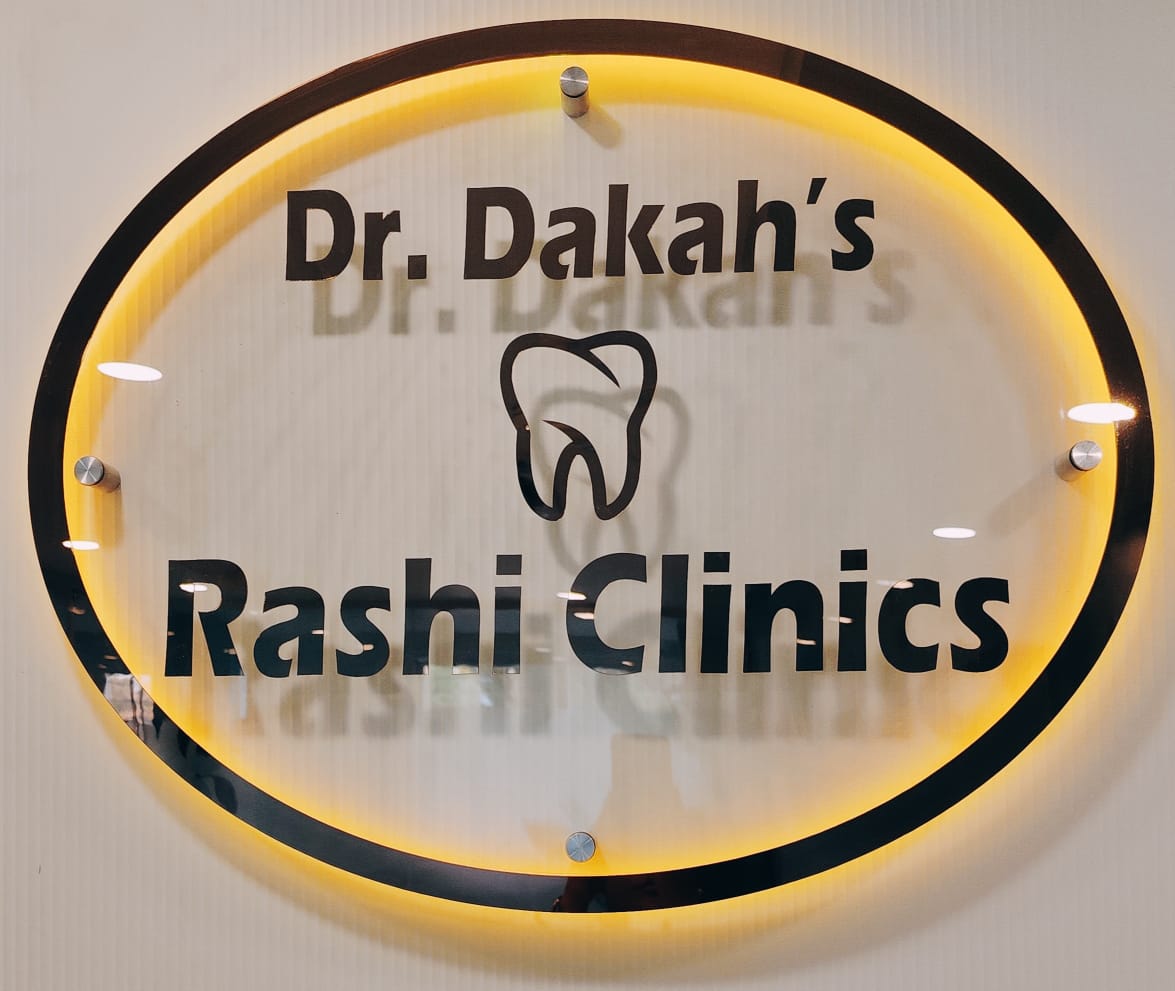+918600111087

This is your website preview.
Currently it only shows your basic business info. Start adding relevant business details such as description, images and products or services to gain your customers attention by using Boost 360 android app / iOS App / web portal.
Dentures (also known as false teeth) are prosth...

Dentures (also known as false teeth) are prosthetic devices constructed to replace missing teeth, supported by the surrounding soft and hard tissues of the oral cavity. Conventional dentures are removable (removable partial denture or complete denture). However, there are many denture designs, some of which rely on bonding or clasping onto teeth or dental implants (fixed prosthodontics). There are two main categories of dentures, the distinction being whether they fit onto the mandibular arch or on the maxillary arch. Medical uses Dentures can help people via: Mastication: chewing ability is improved by the replacement of edentulous (lacking teeth) areas with denture teeth. Aesthetics: the presence of teeth gives a natural appearance to the face, and wearing a denture to replace missing teeth provides support for the lips and cheeks and corrects the collapsed appearance that results from the loss of teeth. Pronunciation: replacing missing teeth, especially the anteriors, enables patients to speak better, enunciating more easily sibilants and fricatives in particular. Self-esteem: improved looks and speech boost confidence in patients' ability to interact socially. Complications Stomatitis Denture stomatitis is an inflammatory condition of the skin under the dentures.[1] It can affect both partial and complete denture wearers, and is most commonly seen on the palatal mucosa. Clinically, it appears as simple localized inflammation (Type I), generalized erythema covering the denture-bearing area (Type II) and inflammatory papillary hyperplasia (Type III). People with denture stomatitis are more likely to have angular cheilitis.[2] Denture stomatitis is caused by a mixed infection of Candida albicans (90%) and a number of bacteria such as Staphylococcus, Streptococcus, Fusobacterium and Bacteroides species.[3] Acrylic resin is more susceptible for fungal colonization, adherence and proliferation. In poor fitting dentures, these inflammations can be identified and referred to as a common sore of the mouth and are dependent on the severity of the inflammation.[4] It's crucial to acknowledge that denture stomatitis ranks among the most prevalent conditions affecting denture wearers, affecting approximately 70% of this population.[5] Early recognition of the signs and symptoms of denture stomatitis is vital for prompt treatment. Some of these symptoms include oral white or red patches, sore throat, pain or discomfort when swallowing, or sores in mouth.[6] Common risk factors for denture stomatitis include denture trauma, poor denture hygiene and nocturnal denture wear. Additionally, systemic risk factors such as nutritional deficiencies, immunosuppression, smoking, diabetes, use of steroid inhalers, and xerostomia play a significant role. Therefore, it's important to conduct thorough examinations to detect any underlying systemic diseases. Precautions denture wearers should take care improving the fit of ill-fitting dentures to eliminate any dental trauma. Stress on the importance of good denture hygiene including cleaning of the denture, soaking the dentures in disinfectant solution and not wearing it during sleeping at night is the key to treating all types of denture stomatitis. Topical application and systemic use of antifungal agents can be used to treat denture stomatitis cases that fail to respond to local conservative measures.[2] Ulceration Mouth ulceration is the most common lesion in people with dentures. It can be caused by repetitive minor trauma like poorly fitting dentures including over-extension of a denture. Pressure-indicating paste can be used to check the fitting of dentures.[7] It allows the areas of premature contact to be distinguished from areas of physiologic tissue contact.[8] Therefore, the particular area can be polished with an acrylic bur. Leaching of residual monomer methyl methacrylate from inadequately cured denture acrylic resin material can cause mucosal irritation and hence oral ulceration as well. Patients are advised to use warm salt water mouth rinses and a betamethasone rinse can heal ulcer.[9] Review of persisting oral ulcerations for more than 3 weeks is recommended.[10] Tooth loss People can become entirely edentulous for many reasons, the most prevalent being removal due to dental disease, which typically relates to oral flora control, i.e., periodontal disease and tooth decay. Other reasons include pregnancy, tooth developmental defects caused by severe malnutrition, genetic defects such as dentinogenesis imperfecta, trauma, or drug use. Periodontitis is defined as an inflammatory lesion mediated by host-pathogen interaction that results in the loss of connective tissue fiber attachment to the root surface and ultimately to the alveolar bone. It is the loss of connective tissue to the root surface that leads to teeth falling out. The hormones associated with pregnancy increases the risk of gingivitis and vomiting. Hormones released during pregnancy softens the cardia muscle ring that keeps food within the stomach. Hydrochloric acid is the acid involved in gastric reflux, also known as morning sickness. This acid, at a pH of 1.5-3.5, coats the enamel on the teeth, mainly affecting the palatal surfaces of the maxillary teeth. Eventually the enamel is softened and easily wears away. Dental trauma refers to trauma (injury) to the teeth and/or periodontium (gums, periodontal ligament, alveolar bone). Strong force may cause the root of the tooth to completely dislocate from its socket, mild trauma may cause the tooth to chip.

